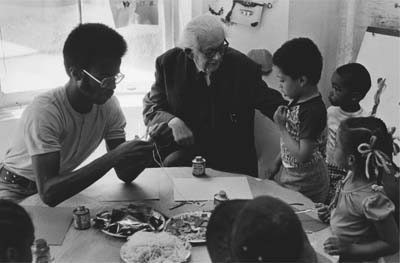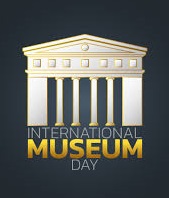Rediscovering Great Teachers - Jean Piaget
Rediscovering Great Teachers - Jean Piaget
 Jean Piaget was a Swiss psychologist and a genetic epistemologist (a person who studies the nature of knowledge) who was born in Neuchatel, a French-speaking region in Switzerland, in 1896. He was the oldest son of Arthur Piaget, a professor of medieval literature at the University of Neuchatel, and Rebecca Jackson.
Jean Piaget was a Swiss psychologist and a genetic epistemologist (a person who studies the nature of knowledge) who was born in Neuchatel, a French-speaking region in Switzerland, in 1896. He was the oldest son of Arthur Piaget, a professor of medieval literature at the University of Neuchatel, and Rebecca Jackson.As a child, he developed a natural interest in Zoology, which earned him considerable recognition in the field after he published articles on molluscs by the age of 15. Around this time, a former nanny of Jean’s wrote an apology letter, on how she had lied about fighting off a kidnapper who tried to attack baby Jean's pram. On hearing this, Jean became fascinated on how he had formed a memory about this kidnapping event, even though it never took place.
He later developed an interest in epistemology(the study of knowledge) which urged him to take up philosophy and logic at the University of Neuchatel. After finishing his graduation, he moved to Paris where he taught at the Grange-Aux-Belles Street School for Boys. The school was run by Alfred Binet, a French psychologist who developed the first practical I.Q test. Jean assisted Binet in marking the tests and, during one of the tests e found out that some students consistently gave wrong answers to certain questions. This made him theorise that young children made certain mistakes that adults and older children did not do. Ultimately, he went on to propose a global theory of cognitive development which spoke about how individuals exhibited a common pattern of cognition in each period of their development.
Later life
In 1921, he returned to Switzerland as the director of the Rousseau Institute in Geneva, which was then headed by Edouard Claparede a Swiss neurologist and child educator. Jean closely followed Claparède’s psychological ideas which were closely associated with the ‘trials and errors’, observed in human mental patterns.
From 1925 to 1929, he worked as a professor of psychology, sociology and philosophy of science at the University of Neuchatel after which he was accepted for the post of Director of International Bureau of Education. He remained the head of its international organisation until 1968. He also drafted his ‘Director Speeches’ for the International Bureau of Education Council and the International Conference on Public Education in which he expressed his educational views.
Due to his vast teaching experience at the University of Geneva and at the University of Paris, Piaget was invited to serve as the chief consultant for two conferences that were held at the Cornell University and at the University of California, Berkeley in March 1964. The conferences addressed the relationship of cognitive studies and curriculum development and strived to conceive the implications of recent investigations of children's cognitive development for curricula.
Influence on education
 During the 1970s and 1980s Piaget’s work influenced the transformation of European and American education system, leading to a more ‘child-centred approach’ in theory and practice. He defined knowledge as the ability to transform, modify and operate an object or an idea while learning, as result of experience. His theory of cognitive development is used as a tool in early childhood education, as he believed that students developed best through classroom interaction.
During the 1970s and 1980s Piaget’s work influenced the transformation of European and American education system, leading to a more ‘child-centred approach’ in theory and practice. He defined knowledge as the ability to transform, modify and operate an object or an idea while learning, as result of experience. His theory of cognitive development is used as a tool in early childhood education, as he believed that students developed best through classroom interaction. Final years
In 1979, Piaget was awarded the Balzan Prize for Social and Political Sciences. He died in 1980 and was buried with his family in the Cimetiere des Rois (Cemetery of Kings) in Geneva.
Piaget’s Theory of education
In his theory, Piaget encouraged teachers to view their students as individual learners who add new concepts to prior knowledge, to construct or build an understanding of themselves. Teachers who use the learner-centred approach could provide experience-based educational opportunities. They could also alter the curriculum based on the learner’s insights and emotions. This helped to create an environment where the students felt safe.





















